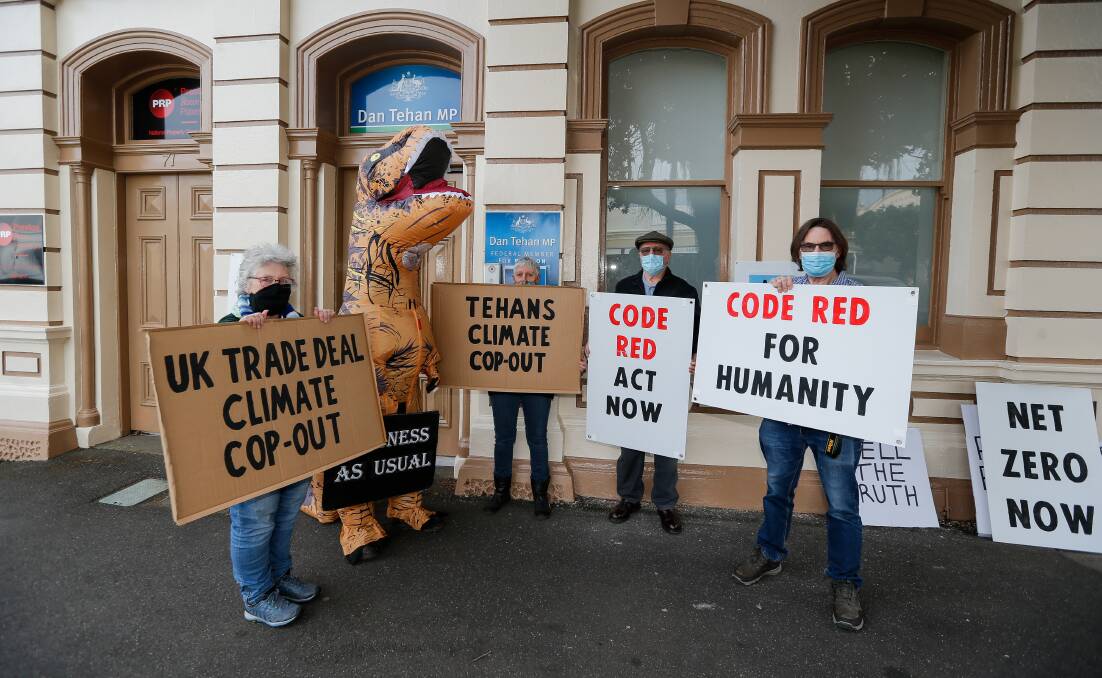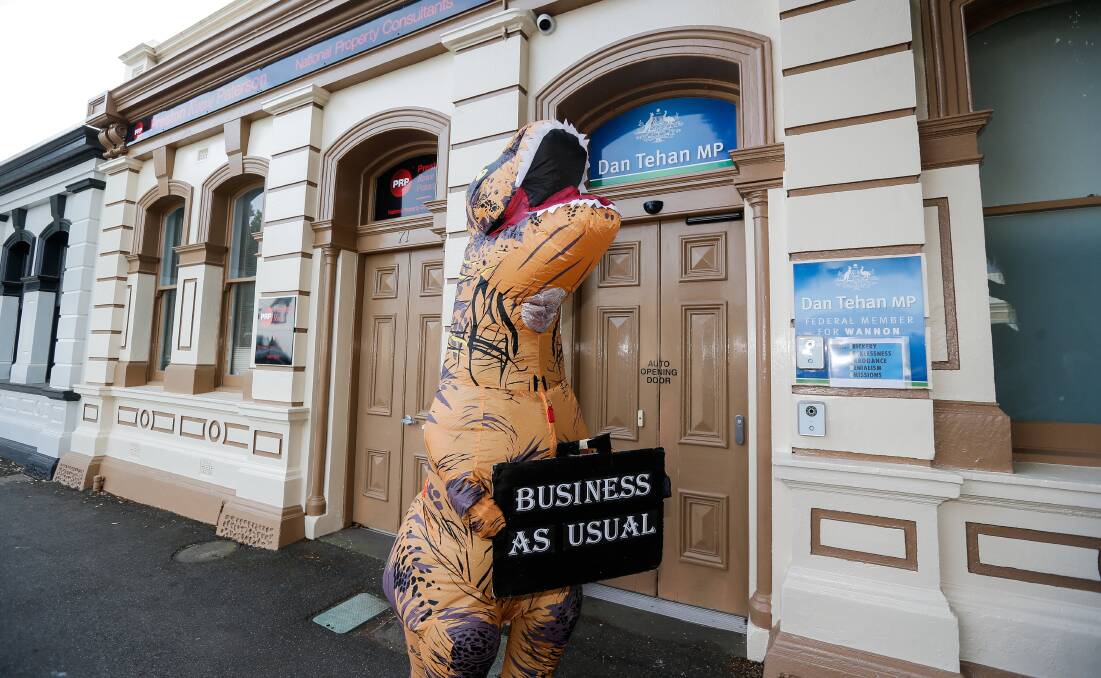
Climate protestors including one dressed as a dinosaur took to federal Trade Minister Dan Tehan's Warrnambool office on Friday to protest an Australia-UK Free Trade Agreement.
Subscribe now for unlimited access.
$0/
(min cost $0)
or signup to continue reading
It was revealed this week that Australia pressured the UK not to include specific climate targets in the agreement.
Warrnambool Extinction Rebellion protestor Alan Northey said he saw the move as "disrupting climate action on an international scale".
"I'd like to see Australia adopt a policy of transitioning away from the use of coal and gas on an urgent basis," he said.
"And through international trade deals fostering international co-operation on climate change and taking the lead."
But the group of six protestors made no attempt to contact Mr Tehan - who has been in Canberra due to coronavirus restrictions - about the issue.
Instead, Mr Northey said the small group had been frustrated by reports of Mr Tehan defending the agreement and wanted to raise awareness.
"That's why today we didn't engage with Dan Tehan, we are just trying to raise awareness," he said.

Mr Tehan told The Standard Australia had "remained consistent" that all its fair trade agreements should focus on international co-operation and meeting existing multilateral environment commitments.
"Our goal is to reach net zero emissions as soon as possible, preferably by 2050," he said.
"Our technology not taxes approach to addressing climate change is delivering results, with updated forecasts showing Australia is on track to meet and beat our 2030 Paris target."
He said the free trade agreeement was about delivering greater market access for beef, sheep meat and dairy producers in south-west Victoria.
"It will also deliver more jobs and greater access for businesses and workers in both countries, all of which will drive economic growth," he said.
Mr Tehan said Australia and the UK signed a letter of intent last month to establish a partnership on low emissions solutions focusing on developing six key technologies.
They included carbon capture and use, carbon capture and storage, small modular reactors including advanced nuclear designs and enabling technologies and low emissions materials including green steel and soil carbon measurement.


